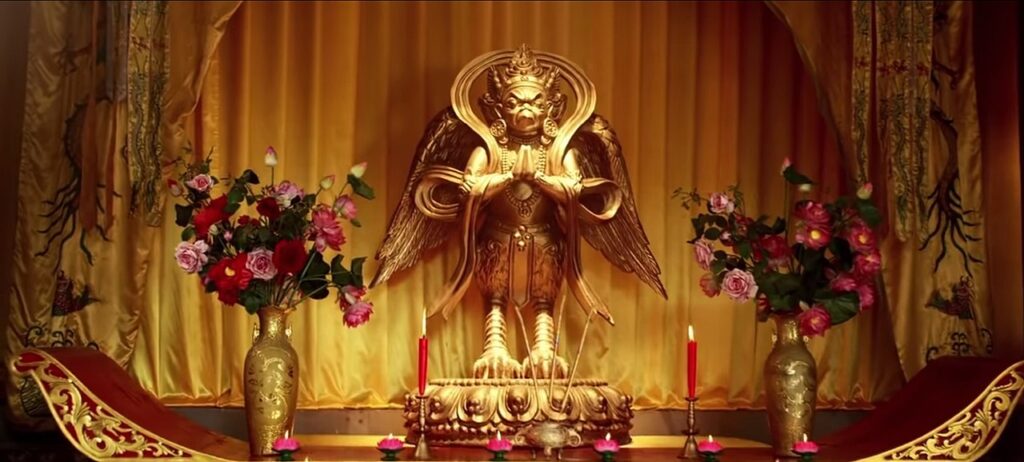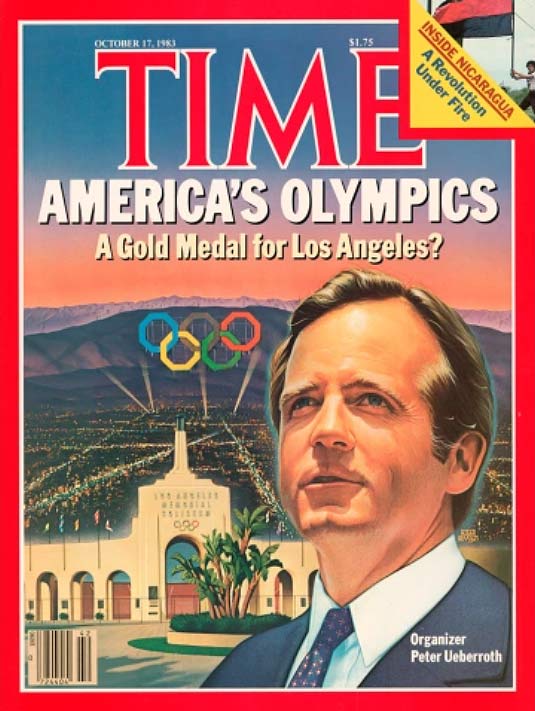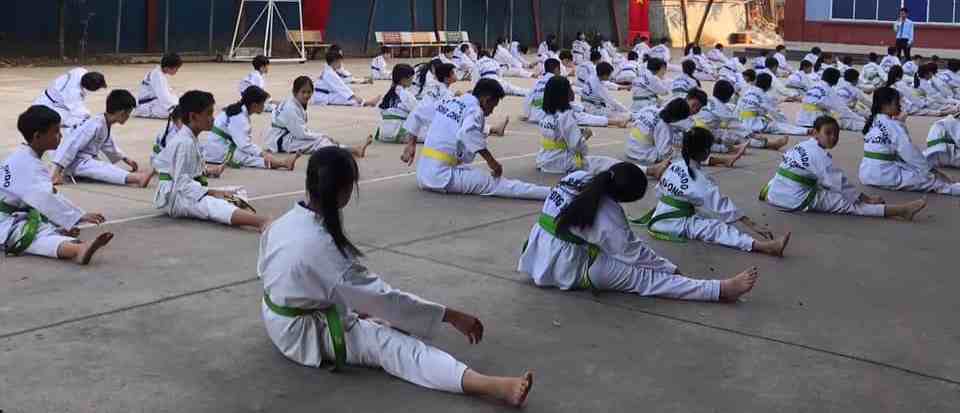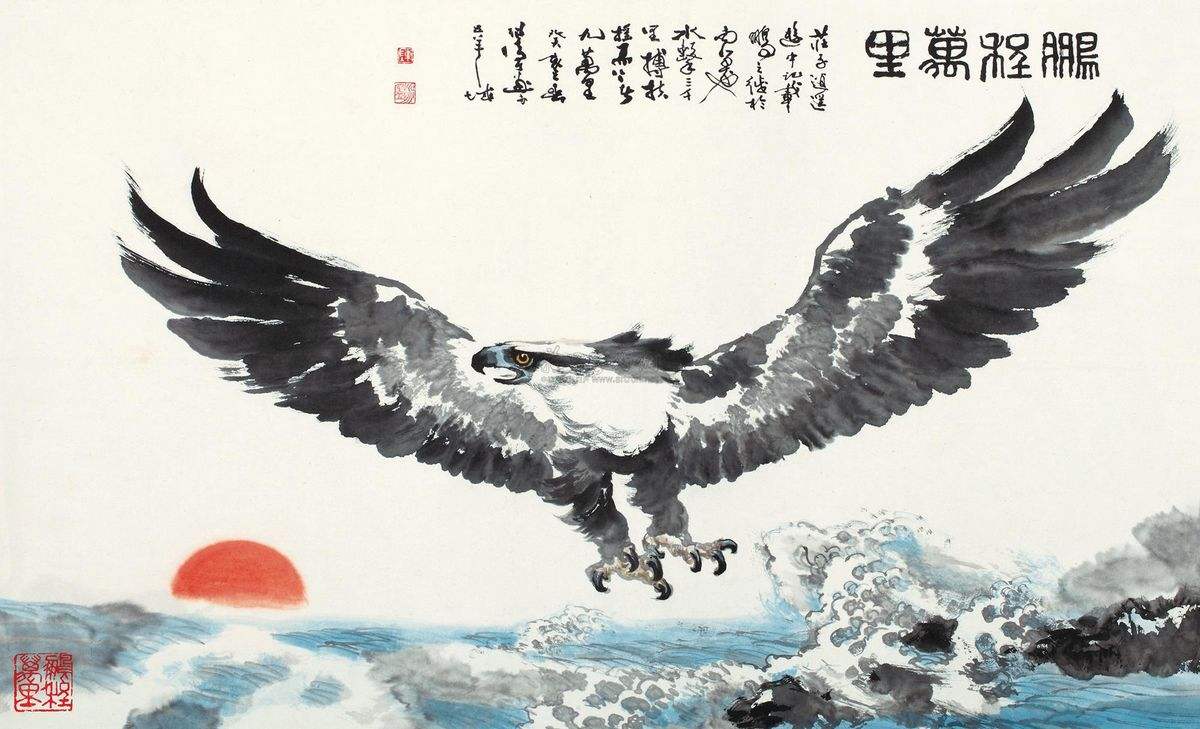From Kun to Peng: A Lesson in Transformation
By Hwa Chong as explained to Patrick Harrigan

The Golden Winged Great Peng
In an ancient Chinese legend, there is a story about a creature called the Kun. The Kun is a giant fish that swims in the deepest waters of the northern seas. For most of its life, it is bound to that watery realm, unseen and unimagined by the smaller fish darting about the shallows. Yet one day, the Kun transforms. It spreads its wings and becomes the Peng, a bird so vast that its wings cover the sky. With the aid of mighty wind currents, the Peng soars thousands of miles to the southern seas.
To the cicada and the dove, who flutter only from branch to branch, this transformation seems laughable. They cannot imagine a flight beyond their tiny horizon. Yet the Peng rises above what others can see or even believe possible.
This ancient tale is more than a fable. It reminds us that transformation often looks impossible to those who cannot yet imagine it. But with persistence, vision, and the courage to rise, new possibilities open.
Spiritus Invictus in Taekwondo
In Kang Duk Won, we often speak of Spiritus Invictus, or ‘indomitable spirit’. This is the heart of our practice. While taekwondo training develops physical strength and technique, its greater purpose is to cultivate resilience, humility, discipline, and courage. Each student begins their journey like the Kun, limited by fear or inexperience. But through steady practice, the student begins to rise.
Like the Peng, Kang Duk Won practitioners are not meant to remain in the small pond or well where they were born. Training lifts us into a broader life: stronger in body, sharper in mind, and steadier in spirit. Yet our tradition reminds us that true greatness is not about rising alone. The martial artist must return to share strength with others—with family, classmates, community, and one’s entire nation. A flight that does not benefit others is a private flight of no use or significance.
A Modern Example: Peter Ueberroth
Transformation is not only for mythical birds or martial artists. Sometimes it is seen at unexpected times or places. One striking example comes from the 1984 Los Angeles Olympics. At the time, the Olympic Games were in deep trouble. Montreal had hosted the Games in 1976 and left behind a mountain of debt. Many cities saw the Olympics as a financial burden, and Los Angeles faced predictions of financial disaster. The Olympics had become too expensive for local governments to afford.
Into this storm stepped Peter Ueberroth. He was neither an athlete nor a sports champion. He was a businessman with no track record in Olympic sport. But like the Peng rising from the depths, he saw a path invisible to others. Ueberroth proposed something unheard of: to fund the Games almost entirely through private sponsorships and creative partnerships. Many doubted him. The cicadas and the doves could not imagine reaching such a distant goal.

As president of the Los Angeles Olympic Organizing Committee, Ueberroth pioneered a private financing model for the Games, which relied heavily on securing television rights and corporate sponsorships. He carefully managed corporate sponsorships, granting exclusive rights to a limited number of companies for high-value deals. He personally sold sponsorships for unprecedented amounts to major corporations like Coca-Cola and McDonald’s.
Under Ueberroth’s leadership, the Games finished with a profit of nearly $250 million, a remarkable turnaround from the widespread predictions of financial failure. Even more importantly, Ueberroth ensured that this money was returned to amateur sports programs across the United States. Thousands of young athletes benefited. For his efforts, he was named Time magazine’s “Man of the Year” in 1984.
Like the Peng, Ueberroth rose higher than anyone thought possible. And like a true martial artist, he returned with something to give back. His success did not remain his alone—it became a great gift to many others.
Lesson: Soar, but Always Return
What do the Great Peng, Spiritus Invictus, and Peter Ueberroth have in common? Each shows us that transformation is possible when we combine vision with perseverance. The Peng’s wings remind us to imagine beyond our limits. Kang Duk Won training gives us the tools and spirit to rise through discipline. And Ueberroth’s example shows that transformation is not about talent alone, but about imagination, persistence, courage, and service.
For taekwondo students, this means every kick, every bow, every moment of concentration in class is part of a larger journey. We do not train just to become stronger or faster, but to rise into a new way of life and a new perspective. For our families, it means supporting children as they discover their own Peng-like potential—encouraging them to see beyond limited horizons and helping them to remember that with greatness comes responsibility.
Image suggestion: students lined up in class, bows exchanged between teacher and student, symbolizing both respect and return.
The Great Peng could have flown forever, but its true meaning lies in returning to share what it has seen. The same is true for us. The goal of Kang Duk Won training is not dominance but self-mastery and service to humanity. As we rise, we must return to uplift others. That is where martial spirit and human greatness meet.
So let us train with the spirit of the Peng. Let us imagine beyond what others say is possible. And let us remember that the true measure of how high we soar is how many people we carry upward with us.

Every stretch, every kick, every act of discipline is a step toward transformation.
